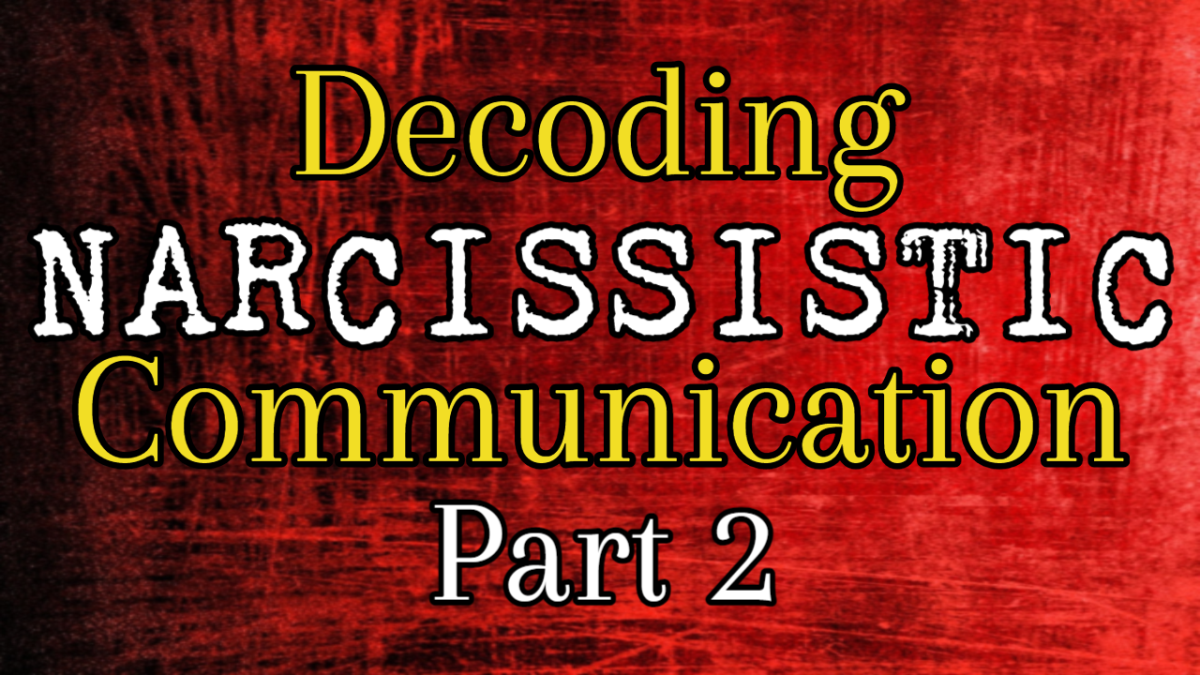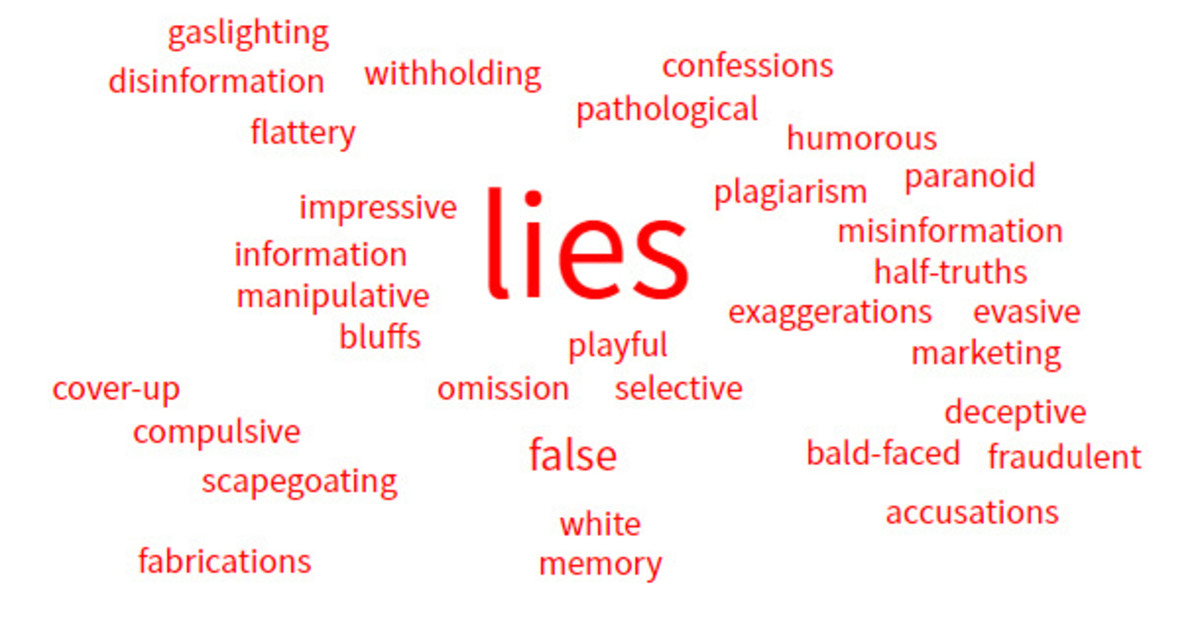Sentence Sermons (Christian Inspiration) #89 --- Slander
Quotations on Slander
Slander is the slime that issues from the tongue of evil. Slander is the weapon of the coward.
—Arthur Growden, The Daily Commercial Dispatch, Columbus, Miss., April 16, 1926.
Slander is society’s poison. Slander is the coin of depravity. Slander is the stock in trade of cowardice. Slander is the tool of destruction used by the enemy of right, enjoyed by depraved taste, studied by the evil in heart. While truth shows like the sun, slander seeks shadows.
—Arthur Growden, The Commercial Dispatch, Columbus, Miss., March 24, 1930.
There are assassins of reputation. To kill an animal you need but thrust a knife in his heart. To kill someone you must take life. But to kill others, you need only put suspicion on their reputations. Their good names are their most valuable points. The gossip's tongue becomes a murderous dirk. Slanders lurk in dark places with vitriolic lies, and blackmailers threaten character. Again, our courts do not call this murder, but at God's judgment seat all such must answer for manslaughter, for they destroy that which is dearer than life.
—Howland Hanson, The Register and Leader, Des Moines, Iowa, April 26, 1909.
Robbing another of his good name through slander is the most vicious sort of stealing. You may rob a man of his merchandise and he may replace it. But if you rob him of his good name, you take away his greatest collateral for doing business. It does not enrich you, but it makes him poor indeed.
—Herschel H. Hobbs, The Beam, Fort Worth, Texas, January 1962.
The persistent making up of falsehoods and the sending of them abroad in the country for the express purpose of creating a false impression upon the public, is one of the most despicable and disgusting occupations possible to conceive. It is enough, one would think, to cause people at a distance to turn a deaf ear to all news of the kind, unless they are of that class of characters that have become so thoroughly demoralized by the morbid appetite for new sensations that, like the opium-eating victim, they cannot resist the temptation, they must have their deadly stimulant, they cannot live without it, and consequently they must have their daily quantum of the sensation, even though they know it is made up of lies all the time. What can be done with such people? Not much, except to let them take their own course, revel in their own slime, and eventually perish of their own rottenness.
—David O. Calder, Deseret Evening News, Salt Lake City, Utah, May 9, 1877.
Beware of listening to slander. When presented with malicious statements concerning an individual or a society, ask for proof. Do not be content to let the accusation go unchallenged or unchecked. He who indulges in slander is doing the Devil's work, no matter what spiritual language he clothes his comments. If the information which he is circulating is untrue or unfounded, he is allying himself with the Slanderer of all men, Satan himself.
The word SLANDER is closely linked to the word SCANDAL, which refers to a snare or a trap. Slander ensnares the unwary, and gives them cause to be offended by the person or society against whom the slanderer has been registered.
Heed the Bible's teaching on slander: "Whoso privily slanders his neighbor, him will I cut off; him that hath an high look and a proud heart will not I suffer." (Psalms 101:5.) Note that slander is not the product of spirituality, but carnality, an high look and a proud heart. This is the source of slander.
If you are the recipient of material that supposedly gives you the 'inside story' about others, be careful lest you become the relayer of such slander.
—Roy V. Wuest, The Messenger, Nederland, Texas, August 1974.
The ear ready for slander makes the lips ready to slay.
—Henry F. Cope, Chicago Tribune, Chicago, Ill., April 14, 1907.
When you find a man generous with black paint for others you may be sure he has whitewash for himself.
—Henry F. Cope, Chicago Tribune, Chicago, Ill., March 7, 1909.
The tongue of the slanderer is the instrument through which Satan’s messages are sent, but in the end its poisons recoil on their inventor.
—J.B. Cranfill, Baptist Standard, Waco, Texas, Jan. 21, 1897.
We usually think of slander as purveying a bald falsehood about another person, and it is. However, we can create a false or misleading impression of another person by subtle suggestion, or by the tone of voice, or even by the manner in which we leave some things unsaid. Whatever may be its method, slander is in violation of the ninth commandment. “Thou shalt not bear false witness against thy neighbor.”
—W. Barker Hardison, Religious Herald, Richmond, Va., June 5, 1952.
"He that hideth hatred with lying lips, and he that uttereth slander, is a fool." (Proverbs 10:18.)
The slanderer is like his father, the devil, who is called "that old serpent." You never knew a slanderer who did not lurk in hiding for his prey. We are told that all poisonous serpents are supplied with fangs and a poison bag at the roots thereof. The slanderer-serpent is fully equipped with these. The two principal elements of the poison he uses are jealousy and hatred. The purer and sweeter the character of his prey the better for the end he hopes to reach in his diabolical work. The enemy of human souls is a demon who can transform himself into an angel of light. The better the supposed standing slanderer the more effective will his work likely be. Hence the devil seeks to do his work through those who are above suspicion, for when a person is branded as a slanderer his likelihood of further work is ended.
The slanderer is always a coward. A brave man would not be guilty of a crime so low and so much beneath his manhood and dignity. A brave man might become a murderer but he would never dagger a man in the back. Such acts are left for cowards. In proof of the fact that a slanderer is a coward he seldom does his work openly and above-board, but does it through an agent, or a person or persons, put in the front, whom he uses as tools, and behind whom he can hide when in danger of being discovered. Such is the character of the typical slanderer.
This is one of the reasons why he is hard to reach in the courts and the principal reason why so many of his class meet death on the shotgun route. This typical slanderer can be detected by the use of "but" and "if" in his conversation concerning those whom he hates. He is fond of using half-truths and magnifying or stretching them to suit his purpose. Another method of the slanderer is insinuation. Sometimes he uses a wink, or a nod of the head, or a smile, and he would not hesitate to use the betrayal kiss if by so doing he could carry out his purpose.
How to treat a slanderer. This is a question that the slanderer knows to be hard to solve in many instances. Hence he takes advantage of it. Some sort of unwise step on the part of the slandered might be to the interest of the slanderer and for this reason it requires caution. The rattlesnake is one of the most dangerous, but he dreads the crushing constrictor power of the kingsnake and his victory depends on getting the latter within striking distance. If you are slandered it is wisest never to strike back except when absolute duty and dignity requires it. It is never wise to try to brush off wet mud but wait till it gets dry. Right living will kill any slanderer on the earth. It builds a wall that cannot be penetrated by the slanderer's shot and shell. It was Socrates who said: "Slanderers do not hurt me, because they do not hit me."
It was Phillip of Macedon who said he never grew angry at slanderers for if what they said of him was true he tried to improve his life above them, and if false he would ultimately shine all the brighter by reason of them. Some of the best people on earth have been slandered, but it is a fact that only the good and useful can be. Jesus Christ, the world's Redeemer, said: "Woe unto you when all men speak well of you," and again He said, "Blessed are ye, when men shall revile you, and persecute you, and shall say all manner of evil against you falsely, for my sake."
—William J. Holtzclaw, The Atlanta Constitution, Atlanta, Ga., Dec. 1, 1902.
"Thou shalt not bear false witness against thy neighbor." (Exodus 20:16.)
Looking back over the days leading up to election day, the thoughtful person will be impressed with the wholesale violation of this Ninth Commandment. It has been violated on local, state and national levels. Men who for more than 300 days out of the year are considered respectable and trustworthy, on announcing as candidates for public office, become men of dark and sinister motives; men whose past records render them unworthy of the trust of honest voters. If the voters believe one half of what they hear and read, they will go to the polls with the conviction that there is not a trustworthy candidate for office; they are forced to choose the least dangerous of the characters whose names are on the ballot.
No one will say that there is not even a bit of truth in any of the charges hurtled back and forth before election day. However a conservative statement would be that many of the charges are without foundation in truth.
The harm done by this wholesale violation of the Ninth Commandment cannot be measured. People in other lands must wonder as concerning the future of a country whose candidates for public office are of such a low order. Relations between individuals and groups are poisoned beyond repair. Those taking part in the bearing of false witness smear their own souls far more severely than the souls of those against whom they bear false witness. Honorable men and women are discouraged from offering themselves as candidates for office when they realize that they and their ancestors will become targets for all kinds of false charges.
What can religious-minded men and women do toward discouraging the bearing of false witness? They can resolve that with God's help they will not only refrain from bearing false witness, but furthermore, they will refrain from being peddlers of the false witness of others. In God's sight there is little difference between the originator of the false witness and the spreader of it. The wise man speaking in the book of Proverbs declares, "He that uttereth a slander is a fool."
There is something else religious-minded people can do toward discouraging the bearing of false witness. They can by word and votes let it be known that they will never help place a man in public office who bases his campaign on question marks, innuendos, and unsubstantiated charges as concerning the character of his neighbor. When God-fearing people have taken the right stand candidates will be encouraged to base their campaign on high planes.
—Charles L. King, Houston Post, Houston, Texas, Nov. 14, 1954.
[Read James 3:1-12.] In James' day, as in ours, there were those idle souls, men and women, with nothing better to do than to go from house to house, dropping a tidbit of slander, insinuating an item of a gossip there, indulging in idle chatter at this place, and on occasion keeping quiet long enough to pick up a juicy morsel to carry to the next stopping place. It would be difficult to accuse them of deliberate falsehoods, but the poison is there, anyway.
Falsehoods are deliberate lies told with the intention of positive harm. Gossip is the repeating of what is heard without first checking to see if it's true, and not bothering to see if harm will be done by its repetition even if it is true. Slander is another evil of the tongue. This is a deliberate attempt to defile the character and reputation of another person. Unkind remarks about the dress, looks, mannerisms, or idiosyncrasies cause hurt feelings. The sharp, caustic comeback that "puts another in his place" is a particularly deadly weapon. Insinuations can be just as devastating as a deliberate falsehood. The tone and inflection with which one talks in conversation can create doubts and cast aspersions which do untold damage.
It is not necessary that a single word be false in order to do damage and cause hurt. Half-truths can even be more dangerous and destructive than whole lies. It is not necessary that a single word be spoken on some occasions. An unfinished sentence, an arched eyebrow, a mouth slightly agape, an incredulous look of surprise--perhaps accompanied by a low-voiced, falling inflexioned "No," or even an emphatic silence may do the job.
—G. Avery Lee, Baptist Message, Alexandria, La., Dec. 1, 1955.
"The tongue . . . is set on fire of hell. . . . The tongue . . . is . . . full of deadly poison." (James 3:6, 8.) The slanderous tongue is a very great sinner. I use the word slanderous to comprehend all detraction of character, whether it be malicious or simply carelessness. The slanderer is certainly a very great sinner. In the language or the text the tongue is called a deadly poison.
—J.W. Lowber, Austin Daily Statesman, Austin, Texas, March 19, 1906.
Slander comes from a corrupt, malicious heart. It is more; it is corruption and malice seeking to harm someone as far as possible. It is a malignant evil. The slanderer would be glad if he could find some evil in your life that he could magnify to your hurt. He would be glad to find out that your character is as bad as he represents it to be. But, in fact, he can do your character no harm, unless his words stir you up to do something you should not do. Here is the great danger to you. Hold your tongue; keep your temper; pray for strength.
—R.L. Whiteside, Christian Standard, Cincinnati, Ohio, April 3, 1913.
There are many varieties of false witness. Consider for a moment slander as a fine art. Some folks have genius of this sort. If a mere simpleton takes up some plausible calumny against an acquaintance and retells it with the gusto of a very newsmonger, he is but a tyrant at his monstrous trade. People will say with a sneer, "This bungling amateur has some strong motive like jealousy for his unnecessary malignity." ... It is not every man who can create a slander and send it forth successfully on its awful mission. The past master of this black art maintains a strange reserve, and slowly makes the impression that he has goods to offer. Then when curiosity creates a market, and the people insist on knowing what is meant, the tale is hinted with infinite suggestions. ...
Who is safe from the "whispering deviltry" of scandal? Neither position nor service, nor even stonewall character can afford to bid it defiance. ... Indeed, one may say that scandal is "the black shadow of fame." Nearly every great character of history has been made the object of some sort of mean attack. ...
We are appalled as we think of the ... words falling from human lips day by day and flowing on to the judgment. And surely God takes account of words, or it would not be written that by our words we are to be justified and by our words condemned. ... Men of the greatest wisdom and judgment have been, as a rule, "swift to hear and slow to speak." ...
Blessed is the man whose tongue is obedient to the law of love; who never uses scorn except to scourge meanness, or satire except to put down folly; who says no ill of any man except under the last compulsion of truth and justice; who delights to speak well of every man and bids the cast-down be of good cheer. These people–God bless them–dispel calumnies, lift shadows, comfort sorrow, establish righteousness, lay strife to rest and bring in the divine kingdom. These Good Samaritans of human society, pouring in the oil and wine of sweet and honest speech, are already justified of God, and their reward of peace is waiting in the many mansions of our Father's house. As their kind words have made many glad on earth, so the welcoming words of the great Judge will make them happy forever beyond the sunrise.
—J.E. Wray, The Daily Picayune, New Orleans, La., April 10, 1905.
“Be thou chaste as ice, and pure as snow, thou shalt not escape calumny.”
Great minds cannot afford to pay heed to little things said of them by those who are not in sympathy with their thoughts or who cannot, because of their inferior brain power, understand the movements of the master mind.
We cannot expect to make friends with all we meet, though we should be friendly with all, and befriend all.
It is a test of greatness to let things said by others which is intended to injure the feelings or the reputation, pass away like the dew before the rising sun. There is no injury that can come to big men by the little unpleasant things said about them by those who envy their success or greatness.
It is the mark of inferiority to say mean things about others. Great minds never descend to that level. They keep above the groveling masses who love to think ill, perchance because they have heard someone else speak evil of the absent. ...
Do you know anything good of your neighbor? Then say it. If you don’t know anything good of them don’t say anything about him.
There are plenty of subjects about which we can converse that are just as interesting to our listeners as the faults of those who are not present with us.
We allow our hate and the venom of words to be hurled against some individual who has done something to stir us and all the time the hated one may be perfectly unconscious of any such feeling and may be enjoying a pleasant sleep or the society of his loved ones, not aware of the energy and the amount of good brain power going to waste over some useless and senseless hate.
He is not injured. The one hating receives the greatest damage–damage he may take long to recover from. His feelings poison his blood and his system becomes clogged and all the while the subject of his hate goes about with no knowledge of the condition of the hater.
We have been told that it is a duty we owe to each other to bring as much sunshine into the world as we can. This world has many dark days and those who make the days and lives of others gloomier are enemies to mankind and the greatest enemy to themselves.
Greatness cannot be injured by the calumny of the inferior. Christ was not moved when men accused Him. He was big enough to live after the words would burn out the very heart of those who uttered them. Deeds, acts, thoughts, words–these are the factors which make men–make them great or make them small.
Review the few really great men and women you have met in this world and every one of them is in your memory because they said nothing against any other that was derogatory to character. You think of them as generous, as forgiving, as long suffering, as charitable, as loving, as kind, as possessing every quality that builds upward. They were not little minds dwarfed with hatred because of some fancied slight they thought they had received. No, they were bigger than the rest of your acquaintances and it wasn’t their stature that made them big either.
If you haven’t time to occupy the evenings at home save the discussion of neighbor’s faults, get out your Bible and call in your friends and in one place you will read this sentence: “We, ourselves, also were sometimes living in malice and envy, hateful and hating one another.”
—Joseph A. McRae, Liahona The Elders Journal, Independence, Mo., March 4, 1913.
Slander is the defamation of character; it may be either national or personal. National slander is the misrepresentation of the acts or purposes of a state or people. Personal slander is the malicious vilification of an individual. False accusations from sources that could only be contemptible have been graciously received by the credulous public–who are ever willing to accredit those statements which are against an unpopular people. ...
Who can estimate the mischief that slander produces? How long will it be ere the world will get rid of those false impressions respecting the slandered state or people? How much or how long will that state or people who have been victims of slander, suffer from cruel prejudice? ...
The mischief which national slander brings upon a state or people, personal slander brings upon the individual. It destroys its victim’s reputation, and awakens cruel prejudice against him. ... The means employed to undermine an individual’s character are the same as those used to bring a whole people into disrepute. ...
Slander throws suspicion on the good; it blackens the fair fame of the pure; it blights all on whom it falls; the innocent are its victims. It is thrice cursed. It curses him who employs it; him who accredits it as truth; it curses its victims.
Slander is the weapon of the envious, of hypocrites, and of cowards; none but the ignoble can with patience listen to it. It befouls the lips through which it passes, infects the pure air of heaven with venom, and leaves its filthy slime on holy ground.
—B.H. Roberts, Contributor, Salt Lake City, Utah, February 1884.
Slander–what a mean, contemptible habit it is, and how much wretchedness it makes. We all know that all the rest of us have faults that are real enough and serious enough. And we all know that when others see the faults we really have and learn of the unbecoming things we actually have done it makes us have unpleasant feelings if we have any conscience and any self-respect. But for a man or woman who has a dislike for someone to take hold of some little circumstance and make of it a disgraceful story of wrong that is as false as it is mean, and spread it about from one to another for the sake of doing harm to the character of that person, oh, how beneath decent people such conduct ought to be! And yet there are plenty that will stoop to it, and the more surprise their slanderous story creates the better satisfied are they. My friends, people could keep strictly within the bounds of truth, and speak very considerately, and yet say much about one another that is discreditable, so frail and full of shortcomings as we. But when disregard for the truth throws down the barriers of restraint and a spite prompted by Satan sharpens the tongue, there is hardly any limit to the work of evil and unhappiness its poisoned words can accomplish. And it is always cowardly; the slanderer speaks when his victim is absent and cannot defend himself or deny the story, and always takes some fact that it is true on which to start the tale of scandal and make it seem plausible and likely. Oh! how many black stains could be wiped from the pages of human life records if the slanderous words men and women have spoken could be recalled! How many sharp pains from grievous wounds could be spared innocent hearts hereafter, if the tongue of spiteful scandal could be forever silenced by the Christian charity that thinketh no evil! What a different world this would be if only the speech of every one were free from sin! I do not believe there is any other way in which men in general make each other so much trouble--the gossip, the slander, the deceiving, the falsehood--oh, how many sad hearts there are because of these things--how many cherished plans interfered with, how many fair reputations blasted. ...
Let no one suppose that it will be an easy thing to avoid sinning with the tongue; that it will require only a little watching of one's words. "Out of the abundance of the heart the mouth speaketh." There is the secret. Altogether vain and useless would it be to attempt to reform the speech if that is the only reform that is attempted. That is a kind of patchwork that will do no good. If the speech is sinful it is a sure sign that there is unsubdued sin in the heart, and as long as it is there it will flow out through the words spoken just as well as show itself in the deeds done. You cannot cleanse the stream so long as defilement comes from the fountain head, except by going right to the fountain itself and removing the cause. So you can never get rid of the sins of the tongue except by driving sin and the love of sin out of the heart, which is the fountain, Christ says, out of which "proceed evil thoughts, false witnesses and blasphemies." David's prayer is therefore the cry that should go up from every one who wants to make a right use of the gift of speech: "Create in me a clean heart, oh God, and renew a right spirit within me."
—I.S. Smith, Dallas Morning News, Dallas, Texas, Jan. 17, 1898.
There is a notorious slander mill and there are persons engaged in concocting and circulating false and slanderous rumors, to the serious damage of the reputation of individuals and to the serious detriment of the community. ... These characters do not circulate these false rumors ignorantly. On the contrary, they know them to be false, either absolutely false, or at best so discolored, misrepresented or misconstrued as to the actual facts, as to convey as positively false an impression as if they were absolutely false. These rumor circulators not only know their rumors to be false, but they concoct most of these rumors in that way purposely, and are therefore undoubtedly guilty of malice aforethought, for they daily seek opportunities of thus stabbing the reputations of men infinitely better than themselves. Such characters should be made exemplary examples of, and they will be when justice rules, if not before.
—David O. Calder, Deseret Evening News, Salt Lake City, Utah, May 10, 1877.
One of the most vicious as well as thoughtless habits widely active among us is the way we question the sincerity of others. This is not an offense which comes under any law of our statute books, and that is as it should be, but it is an offense which does as much damage in some instances as offenses which are very strictly punishable by law. There are many ways of stealing, and one is to steal from another the respect which his integrity deserves. There are many methods of assault, and one is to attack in the dark, from behind, the fair reputation of character. There are many vehicles of murder, and one is to kill a good name by administering the slow poison of harmful observations, or starve one’s rightful honor of its health by withholding appreciation and approval.
—Karl Reiland, New York Times, New York, N.Y., June 22, 1925.
Slander is a great evil, and may be indulged in different degrees of excess. You may slander persons who are entirely innocent, merely because you imagine they are guilty; you may have seen some circumstances which caused you to have suspicions, and instead of burying those suspicions in your own breasts, you give publicity to them, and, perhaps, with an additional coloring; your own suspicions produce a dislike to them, and you seek to create those disagreeable feelings against them in others. You do not speak directly against them, for this would expose you as an open slanderer, and would measurably destroy your influence. In order that your slanders may have the greatest possible effect, and obtain a degree of credibility, and produce more serious injury, you clothe them with piety. You hypocritically pretend that you very much dislike to speak of their faults; but you are very careful to insinuate, in guarded and blind manner, some great evil, leaving the impression that there is something very serious, about which you do not like to speak. And thus you endeavor to instill bitterness of feeling and prejudice into the minds of your listeners. Woe unto you! for it would be better for you to be cast into the depths of the ocean, than to unjustly offend those who are innocent before God. Woe unto you! for your hypocrisy and deceit shall fall with pain upon your own heads.
Again, you may slander persons who are not altogether innocent. You may expose them to others, who should be kept in ignorance concerning their faults, until the proper steps can be taken with them, according to the law of God. You seek to make their sins public, and to create a prejudice among the [people] against them. You do not seek to save them, but to destroy. You place yourself in the attitude of a destroyer. Such a spirit is of the devil, for he also seeks to destroy, and to accuse the Saints, and to stir up wrath against them. Will you follow in his footsteps? Will you slander and speak evil of your brother or sister who has sinned? Will you seek to trample the weak Saint down to hell, because he has been overtaken in a fault? Remember, that if you do this, you are no longer the saviors of men but their destroyers. Cease, therefore, your slanders against the transgressor. Cease to spread forth his evil deeds upon the housetops. Cease to make public that which will injure and destroy. Cease your backbitings and all your evil speakings one against another. Cease your tattlings about your own family affairs, or those of your neighbor.
—Orson Pratt, Millennial Star, Liverpool, England, May 2, 1857.
A scandalmonger is a social vulture.
—Dallas Morning News, Dallas, Texas, April 24, 1905.
A whisper of slander is heard further than a shouted compliment.
—The Friend, Philadelphia, Pa., Sept. 3, 1892.
The slander differs from the assassin, in murdering the reputation instead of the body.
—Ohio Farmer, Cleveland, Ohio, Jan. 29, 1859.








